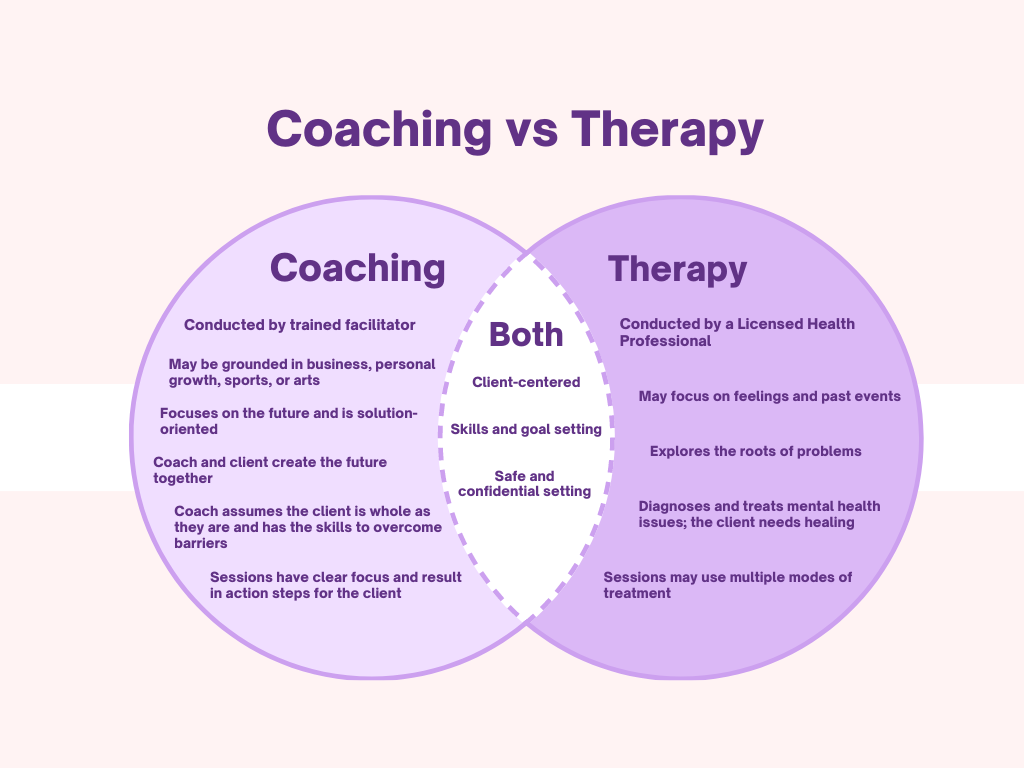Coaching vs Therapy
What is coaching and how does it
differ from therapy?

A coach guides the client in clarifying goals of all kinds (academic, social, family relationships, and extracurricular and more), helping them to identify obstacles, and design solutions to lead them to the desired result. The process of life coaching takes the client’s starting point as perfectly acceptable and neutral. The client is the expert on themselves and the coach guides from that point onward, without judgement.
Qualified coaches have been certified or trained by an accredited coaching school or program. Coaches are not doctors and will refer to medical professionals when a subject is outside of their scope of practice.
With coaching, sessions focus on actions that can be taken, problem-solving, and the future, rather than past events. We focus on new patterns of behavior that will help the client to achieve the desired result.
As a coach, Marianne:
- Asks meaningful questions that lead clients to find the answer to their issues themselves, providing a deep sense of empowerment and capability.
- Listens patiently and carefully, allowing a safe and confidential space to voice thoughts, opinions, and concerns.
- Uses her own life experiences along with proven strategies and tools to lead the young person to higher self-confidence, stronger friendships based on mutual respect, less anxiety and stress, and a deep sense of knowing their core values.
Coaching topics may include:
- Identity and core values: Who am I and what is important to me?
- Self-confidence and self-worth
- Peer pressure surrounding substance use and sexual activity
- Academic pressures and future school goals
- Friendships: how to navigate the drama and changing landscapes as you grow
- Body-image
- Social media
- Family relationships: conflicts with siblings or parents, divorce
Marianne maintains professional relationships with psychologists, social workers, family therapists, acupuncturists, nutritionists, and behavioral health specialists. She will happily make referrals when it is in the best interest of her coaching clients.